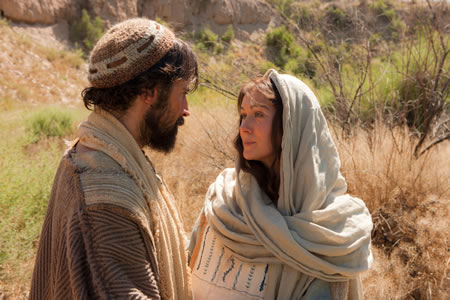There is an interesting Greek word that only appears 18 times in Scripture. It is ‘thymeomai’, coming from the root word ‘thymos’. It is used to describe:
- the wrath of the congregation in Nazareth that tried to kill Jesus (Luke 4:28)
- the rage of Herod when the wise men didn’t report back to him (Matthew 2:16)
- Jesus analysis of the scribes thoughts (Matthew 9:4)
- God’s wrath toward sin (Revelation)
- the indignation / anger of Peter with the vision of the unclean animals (Acts 10:19)
It is defined as boiled up anger; outburst of passion; wrath; (disturbed, indignation, shame, fumed; deep disappointment, upset)
There is also another instance where it occurs, but the original English translators struggled with portraying it as such.
- used to describe the indignation / anger of Joseph about Mary’s pregnancy (Matthew 1:20)
It’s often translated ‘considered’ which does not provide the real concept of his feelings when he heard the news. This was before a dream set him straight. Joseph felt betrayed, indignant, overwhelmed at her getting pregnant; and angry in knowing what he needed to do (have her taken out and stoned). He had to keep the law but desperately did not want to lose his beloved fiancé.
‘Thymeomai’ is the word used to describe Joseph’s anger. But how did the rest of the townspeople react? Joseph was close to Mary and deeply involved in her life. But his family, colleagues and neighbours were more law abiding than him. Why did the angel only come to him? Life would have been much easier for everyone, if the whole community had received that message. (They were still boiling years later when they tried to throw Jesus off a cliff!)
 We have very little information about Joseph. But he is going to be a significant person for me to interview when I get to heaven.
We have very little information about Joseph. But he is going to be a significant person for me to interview when I get to heaven.
He is referred to as a ‘just’ man. That would describe him as a law abiding citizen who applies rules fairly to everyone. He does not bend rules to favour some. The equal application of Moses law was still upheld by his Hebrew culture and community. Anyone caught pregnant outside wedlock was stoned. (Deut 22:23) But Joseph, the ‘just’ man, decided to break the law. That was a bold act amongst the Nazareth populace. It deserves some serious reflection. He decided to apply a different understanding of the law to this crisis. On one side he had a young girl who insisted on her innocence but was experiencing dread at what the community interpreted of her pregnancy. The other side was a community, and nation, vying to uphold the law.
Joseph possessed boldness, courage, daring and strength of character to stand up against the rules and traditions of his community. He did so in spite of heavy pressure by those who intended to have her stoned. He did it and married his pregnant fiancé. His different vision of justice aided him in reprocessing his anger into grace. This word ‘thymos’ also includes the meaning of ‘properly handled anger; anger as an intrinsic component to righteous indignation, instead of anger that stems from not getting what we want. It is anger that leads to deep and abiding love for those who are weak and oppressed.
Why did Joseph take Mary to Bethlehem? It wasn’t necessary, especially in her condition. Quite possibly it was because he did not trust the folks in Nazareth. He was unsure of what might happen if he left her behind. Joseph is a hero, without whose understanding of the prophets, with courage to believe them, our Christmas story would have been quite different.
May you be blessed through embracing the Spirit of Truth who doesn’t occupy your mind with chatter but only relays what your Father intends for you. … john (John 16:13)
(original post Sept 27 2015)



